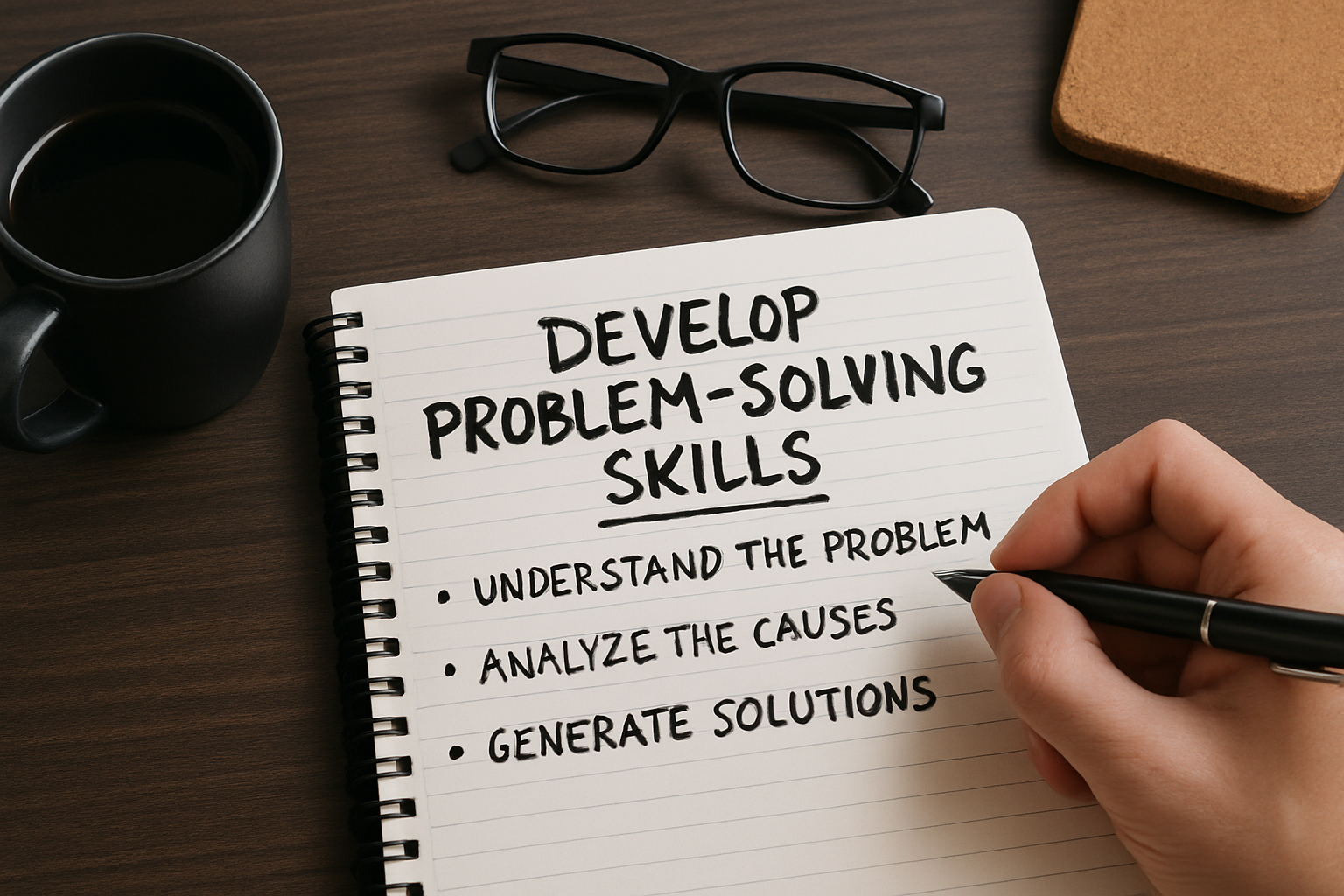Problem-solving is one of the most critical skills you can develop in any profession. Every workplace encounters challenges, and the ability to analyze issues, find effective solutions, and implement them successfully is a hallmark of high-performing professionals. Strong problem-solving skills not only make you more valuable to your employer but also open doors to leadership opportunities. In this article, we’ll explore strategies to strengthen your problem-solving abilities at work.
Understand the Problem Thoroughly
The first step to solving any problem is fully understanding it. Before rushing into action, take time to:
- Clarify the issue
- Identify the root cause
- Gather all relevant information
Asking good questions and listening carefully to all stakeholders helps you define the problem accurately, avoiding wasted effort on the wrong issue.
Break the Problem Down
Complex problems often feel overwhelming because they consist of multiple layers. Break the issue into smaller, manageable parts. Analyze each component individually to better understand the dynamics at play. Solving smaller parts one at a time makes the overall problem less intimidating and more solvable.
Approach Problems Methodically
Using a structured problem-solving process ensures you stay organized and objective. A commonly used framework is:
- Define the problem
- Analyze the causes
- Brainstorm potential solutions
- Evaluate and select the best solution
- Implement the solution
- Monitor and adjust as necessary
Following a consistent process improves your efficiency and increases the likelihood of finding effective solutions.
Develop Analytical Thinking
Analytical thinking helps you break information into parts and understand relationships between them. To sharpen your analytical skills:
- Practice identifying patterns and trends
- Use data to support your conclusions
- Question assumptions and biases
Analytical thinkers are better equipped to diagnose problems accurately and choose rational solutions.
Foster Creativity
Not all problems can be solved with conventional approaches. Sometimes, creative thinking is required to find new and better ways to address challenges. Foster creativity by:
- Brainstorming freely without judgment
- Considering multiple perspectives
- Asking “what if” questions
- Being open to unconventional ideas
Creativity combined with critical thinking leads to innovative problem-solving.
Collaborate with Others
Two heads are often better than one when solving complex problems. Involve colleagues with different skills, experiences, and viewpoints. Collaboration can lead to richer insights, prevent blind spots, and produce more well-rounded solutions.
Stay Calm Under Pressure
Pressure can cloud judgment and lead to hasty decisions. Strong problem-solvers remain calm and composed, even under stress. Techniques like deep breathing, pausing before responding, and focusing on facts over emotions can help you maintain clarity and make better decisions.
Learn from Past Problems
Reflecting on past problems you’ve encountered is an excellent way to improve your skills. Analyze:
- What went well?
- What could have been handled better?
- What lessons were learned?
Each experience adds to your problem-solving toolkit, making you more prepared for future challenges.
Take Initiative
Don’t wait for others to fix problems you identify. Proactively suggest solutions, volunteer to lead resolution efforts, and take responsibility for results. Taking initiative demonstrates leadership potential and earns respect from colleagues and supervisors.
Build a Career by Solving Problems Effectively
Problem-solving is a skill that can be learned, practiced, and mastered over time. By understanding issues thoroughly, applying analytical and creative thinking, collaborating with others, and staying calm under pressure, you position yourself as an indispensable professional. Start strengthening your problem-solving abilities today — your career will thank you for it.

